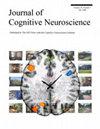Relevance of Prosodic Focus and Lexical Stress for Discourse Comprehension in Turkish: Evidence from Psychometric and Electrophysiological Data
IF 3.1
3区 医学
Q2 NEUROSCIENCES
引用次数: 0
Abstract
Prosody underpins various linguistic domains ranging from semantics and syntax to discourse. For instance, prosodic information in the form of lexical stress modifies meanings and, as such, syntactic contexts of words as in Turkish kaz-má “pickaxe” (noun) versus káz-ma “do not dig” (imperative). Likewise, prosody indicates the focused constituent of an utterance as the noun phrase filling the wh-spot in a dialogue like What did you eat? I ate _____. In the present study, we investigated the relevance of such prosodic variations for discourse comprehension in Turkish. We aimed at answering how lexical stress and prosodic focus mismatches on critical noun phrases—resulting in grammatical anomalies involving both semantics and syntax and discourse-level anomalies, respectively—affect the perceived correctness of an answer to a question in a given context. To that end, 80 native speakers of Turkish, 40 participating in a psychometric experiment and 40 participating in an EEG experiment, were asked to judge the acceptability of prosodic mismatches that occur either separately or concurrently. Psychometric results indicated that lexical stress mismatch led to a lower correctness score than prosodic focus mismatch, and combined mismatch received the lowest score. Consistent with the psychometric data, EEG results revealed an N400 effect to combined mismatch, and this effect was followed by a P600 response to lexical stress mismatch. Conjointly, these results suggest that every source of prosodic information is immediately available and codetermines the interpretation of an utterance; however, semantically and syntactically relevant lexical stress information is assigned more significance by the language comprehension system compared with prosodic focus information.语法重点和词汇重音与土耳其语话语理解的相关性:来自心理测量和电生理数据的证据。
前音支撑着从语义学、句法到话语的各个语言领域。例如,以词汇重音形式出现的前音信息会改变词义,从而改变词的句法上下文,如土耳其语中的 kaz-má "镐"(名词)与 káz-ma "不要挖"(祈使句)。同样,在对话中,前音表示语篇中的重点成分,如名词短语填wh-spot,如What did you eat?我吃了----。在本研究中,我们探讨了这种拟声变化与土耳其语话语理解的相关性。我们旨在回答关键名词短语的词性重音和前音重点不匹配--分别导致语法异常(涉及语义和句法)和话语层面的异常--是如何影响特定语境中问题答案的感知正确性的。为此,80 位以土耳其语为母语的人,其中 40 人参加了心理测量实验,40 人参加了脑电图实验,被要求判断单独或同时出现的前音不匹配的可接受性。心理测量结果表明,词性重音错配导致的正确性得分低于前音重心错配,而组合错配得到的得分最低。与心理测量数据一致的是,脑电图结果显示了对组合错配的 N400 效应,这种效应之后是对词汇重音错配的 P600 反应。这些结果表明,每一种前音信息源都是即时可用的,并共同决定了对语篇的解释;然而,与前音焦点信息相比,语言理解系统赋予语义和句法相关的词汇重音信息更重要的意义。
本文章由计算机程序翻译,如有差异,请以英文原文为准。
求助全文
约1分钟内获得全文
求助全文
来源期刊
CiteScore
5.30
自引率
3.10%
发文量
151
审稿时长
3-8 weeks
期刊介绍:
Journal of Cognitive Neuroscience investigates brain–behavior interaction and promotes lively interchange among the mind sciences.

 求助内容:
求助内容: 应助结果提醒方式:
应助结果提醒方式:


